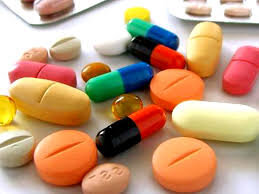Introduction
In our world today, medical advancements have greatly transformed our lives. One of the most crucial aspects of this transformation is the development of life-saving medications. These drugs play a significant role in managing and treating conditions that could otherwise be fatal. Understanding their importance not only sheds light on their impact on individual health but also highlights their critical role in public health.
What Are Life-Saving Medications?
Life-saving medications are drugs specifically designed to treat severe or life-threatening conditions. They can cure diseases, manage symptoms, or significantly prolong life. These medications are essential for treating a range of conditions, including cancer, cardiovascular diseases, infections, and chronic illnesses.
The Role of Life-Saving Medications in Managing Chronic Diseases
Chronic diseases such as diabetes, heart disease, and chronic respiratory conditions can severely impact a person’s quality of life. Life-saving medications are crucial in managing these diseases by controlling symptoms and preventing complications. For instance, insulin is a life-saving medication for people with diabetes. It helps regulate blood sugar levels and prevents potentially severe complications like diabetic ketoacidosis.
Similarly, medications like statins are used to manage cholesterol levels and reduce the risk of heart attacks and strokes. These drugs can help individuals lead healthier lives and significantly reduce the incidence of severe cardiovascular events. A pomalidomide exporter is a company that supplies pomalidomide, a vital cancer medication, to other countries for patients in need.
Impact on Infectious Diseases
Infectious diseases, both acute and chronic, have been a major threat to human health throughout history. Life-saving medications such as antibiotics and antiviral drugs have revolutionized the treatment of infections. For example, antibiotics like penicillin have made once-fatal bacterial infections treatable. Antiviral medications, such as those used for HIV/AIDS, have transformed the disease from a fatal diagnosis to a manageable condition, allowing individuals to live longer, healthier lives.
Medications for viral infections, such as antiviral drugs for hepatitis B and C, have also been life-changing. They not only treat the infection but also prevent the progression to severe liver diseases, including liver cancer and cirrhosis.
Cancer Treatments: A Beacon of Hope
Cancer is one of the most challenging health conditions, but advances in cancer treatments have brought hope to many. Life-saving medications, including chemotherapy, targeted therapy, and immunotherapy, have improved survival rates and quality of life for cancer patients. These medications work by targeting cancer cells more precisely or by boosting the body’s immune response to fight the cancer.
For example, drugs like imatinib have revolutionized the treatment of chronic myeloid leukemia (CML). Before such medications, CML was often fatal, but now many people with the disease can live long and productive lives.
Emergency Situations: Immediate Interventions
Life-saving medications also play a critical role in emergency situations. For instance, medications like epinephrine are essential for treating severe allergic reactions or anaphylaxis. In such emergencies, prompt administration of epinephrine can be the difference between life and death.
Similarly, medications used in acute heart attacks, such as thrombolytics, work to dissolve blood clots and restore blood flow to the heart. These interventions are crucial for reducing heart damage and improving survival rates.
Preventive Medications
Preventive medications are another vital aspect of life-saving drugs. Vaccines, for instance, are a type of preventive medication that protects against infectious diseases. They work by stimulating the immune system to recognize and fight specific pathogens. Vaccines have played a significant role in controlling and eradicating diseases like smallpox and polio, showcasing their importance in maintaining public health.
Read more: Specialitymedz
The Global Impact of Life-Saving Medications
The benefits of life-saving medications extend beyond individual health to global health improvements. Access to these medications can dramatically reduce mortality rates and improve quality of life in various parts of the world. However, access to life-saving medications is not uniform globally. In many low- and middle-income countries, there are challenges in accessing these essential drugs due to factors like cost, availability, and healthcare infrastructure.
Efforts by international organizations, governments, and pharmaceutical companies to increase access to life-saving medications are crucial. Initiatives such as the Global Fund and GAVI are working to provide essential medications to those in need, demonstrating a commitment to improving global health.
The Future of Life-Saving Medications
The future of life-saving medications holds promise with ongoing research and development. Advances in biotechnology, personalized medicine, and gene therapy are paving the way for new treatments that could revolutionize how we approach various health conditions. For example, gene editing technologies like CRISPR offer potential cures for genetic disorders by directly altering the DNA responsible for the disease.
Challenges and Considerations
Despite their importance, there are challenges associated with life-saving medications. These include issues related to drug affordability, accessibility, and potential side effects. Addressing these challenges is essential to ensure that life-saving medications remain effective and available to all who need them.
Conclusion
Life-saving medications are a cornerstone of modern medicine, offering hope and improved quality of life to millions. Their impact on managing chronic diseases, treating infections, providing cancer care, and responding to emergencies cannot be overstated. As we look to the future, continued innovation and efforts to ensure global access to these essential drugs will be vital in advancing health and saving lives worldwide. Understanding and supporting the development and distribution of life-saving medications is crucial for achieving optimal health and well-being for all.

